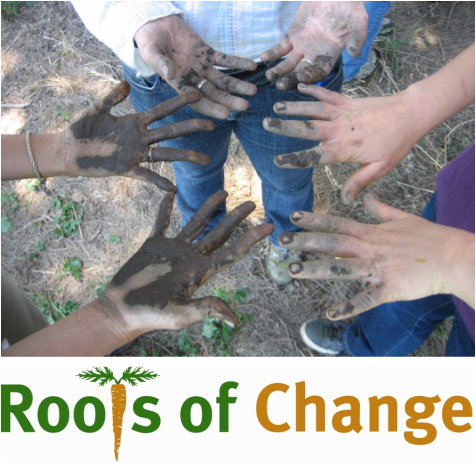
Their work goes deep from strategic planning at the state level to their Farmer's Market Consortium which leverages the food stamp program to not only help those in need gain access to sustainably grown food but to increase demand for these products thus securing more business for organic farmers.
The cornerstone to their mission lies within their "convening" practice where they coordinate regional roundtables with stakeholders in local agriculture - farmers, non-profits, government agencies and businesses. Roots of Change provides the process but the agenda is driven solely by its participants. It is the participants who agree upon realities in their foodshed and develop a map for change. Through this cooperative process, Roots of Change hopes there will be enough area roundtables to form a Food System Alliance which can contribute to shaping California food policy. But the process isn't always rosie. In fact, it can get down right noise, haha. As Roots of Change president, Michale Dimock, describes, "Your working with people from different sectors and at different levels. You've got to get people to open up and start sharing so you push in a variety of ways to create that spark."
To move the ball forward, we need to work in collaboration. In these roundtables are both conventional and organic growers. By first striking a balance with agreed realities, these unlikely allies can work together on progressive policy. Here is where it gets a little sticky though...just recently, Roots of Change came out with a promotional video called, Food Movement Rising. It starts off with all the usual, scary things associated with modern-day farming and ends with the solutions for a sustainable food future. Sounds great, right?? Wrong...the conventional growers in these roundtables feel blindsided. They thought they were working in cooperation only to have the finger pointed at them. Guess they didn't get the memo on what it meant to "transform" the food system. "Transforming" could have different meanings to different people. For many of us, transforming means converting conventional farming practices over to sustainable. For conventional growers, it must mean their methods still have a place at the table but in a modified approach, i.e. instead of Pesticide A that is a proven carcinogen and an endocrine disruptor, they will use Pesticide B which is just a carcinogen. Fleshing out misunderstandings like this is all part of the process and where new realities will be met. Back to the drawing board!

 RSS Feed
RSS Feed
